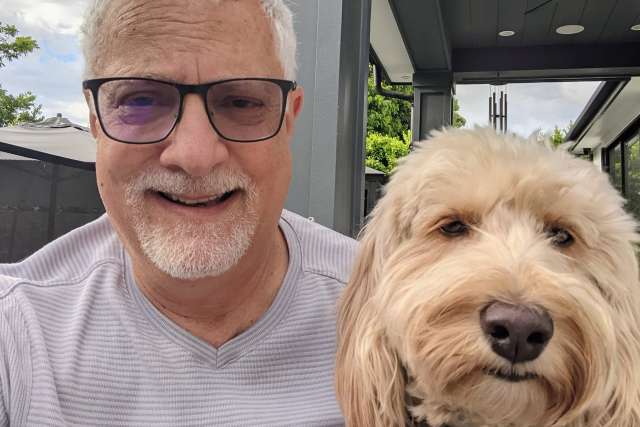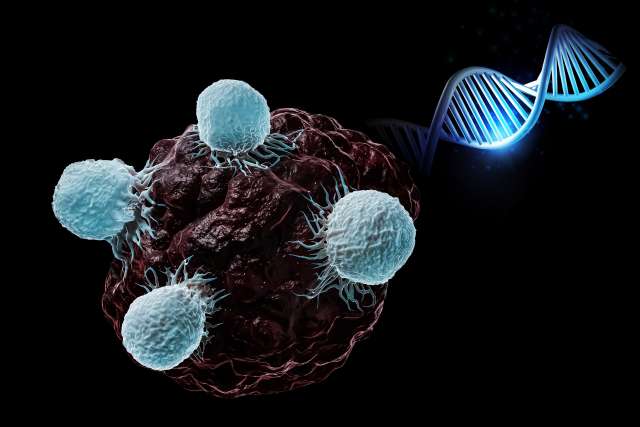Atlanta-based fertility specialist Mark Perloe, MD, has 32 years of medical experience under his belt. So when he was diagnosed with prostate cancer in March of 2020, he thought he knew what to do. But he is the first to admit that was actually far from the truth.
“When I first started out, I thought I knew enough, which caused me to make some mistakes in regards to what treatment I should get,” he said. “Most people—including myself—don't get the information they really need to make good decisions.”
Many aren’t aware that prostate cancer is one of the most common cancers in men, primarily among those older than 65. About one in eight men will be diagnosed with prostate cancer in their lifetime.
After Dr. Perloe’s first treatment was unsuccessful, he decided he needed to work with the nation’s best to figure out his next steps. And because his diagnosis came at the peak of COVID-19, he was able to connect with physicians across the country thanks to the boom of telemedicine.
That’s how he ended up at UCLA Health, where he signed up for a clinical trial for a PSMA PET scan. This type of scan, co-developed by researchers at UCLA, uses a radioactive tracer that allows for a more precise detection of prostate cancer.
It was through the clinical trial that he learned his cancer had started to spread to other parts of his body. Once cancer has spread, or metastasized, to outside the prostate it can become more difficult to treat.
“As a surgeon myself, I knew I didn’t want surgery,” said Dr. Perloe. “There are a lot of side effects that I felt I was just too young to deal with—including urinary incontinence and erectile dysfunction. So I decided to look at radiation therapy and started searching the latest research, videos and lectures that were coming out of this field and everything I was finding was leading me to Dr. Amar Kishan at UCLA Health.”
A leader in radiation treatment
Dr. Kishan, the vice-chair of Clinical and Translational Research and chief of the Genitourinary Oncology Service for the department of Radiation Oncology at the David Geffen School of Medicine at UCLA and the UCLA Health Jonsson Comprehensive Cancer Center, specializes in using radiation to treat genitourinary malignancies, particularly prostate and bladder cancers.
Along with running an active clinic, he leads a translational research program and has spearheaded multiple innovative clinical trials in radiation oncology. He is currently the principal investigator on several trials looking at the benefits of MRI-guided stereotactic body radiotherapy (SBRT).
Dr. Kishan is leading a phase III trial of this type of MRI-guided technology system, called MRIdian. Dr. Kishan and team are developing techniques to reduce SBRT side effects through more precise targeting of the prostate. SBRT is a type of radiotherapy for prostate cancer that delivers five precisely targeted doses of radiation
“When treating prostate cancer with external radiation, we need to treat not only the prostate, but a slight margin of tissue around the prostate as well, to account for things like motion,” said Dr. Kishan. “With MRI-guided radiation, we are able to monitor the position of the prostate with unprecedented frequency and accuracy, allowing the use of much narrower planning margins than we usually use. We recently showed in a randomized trial that this leads to less bowel and bladder side effects.”
Sharing what he's learned
In October of 2020, Dr. Perloe traveled out to Los Angeles from Atlanta to begin treatment with Dr. Kishan. After two weeks of radiation, Dr. Perloe’s PSA (prostate-specific antigen) levels dropped dramatically. Today, they are so low the cancer is considered undetectable.
“Everyone at UCLA was warm and made me feel that what happened to me during treatment mattered,” said Dr. Perloe. “I looked forward each day to greeting the radiation technologists who took the time to answer my questions and to make sure I understood the process. Before starting treatment, I was quite apprehensive about radiation treatment but very quickly traffic on the 405 was the biggest concern.”
After treatment, Dr. Perloe, 71, who is now retired, moved to Los Angeles to be closer to his daughter and grandchildren. He also dedicates a large portion of his time to meeting with patients in support groups and encourages men to screen for prostate cancer as well as to follow up on abnormal results.
“While I technically may not be working, I have important jobs that keeps me busy,” said Dr. Perloe. “One being promoting prostate education and awareness. Unfortunately, many people and physicians are unaware of the amazing technologic advances that are available when prostate cancer is diagnosed earlier. People are afraid of radiation because they don't understand it.”
Along with answering questions on various online groups and webinars, Dr. Perloe throws “Pizza and Prostate” parties for fellow patients who just finished their treatment.
“We hang out, eat homemade pizza and share our stories and just get to know each other,” said Dr. Perloe. “I think it’s so important that guys get out and tell their stories and let others know that it's not as scary as we're led to believe.”
Take the Next Step
Learn more about Radiation Oncology services at UCLA Health.




